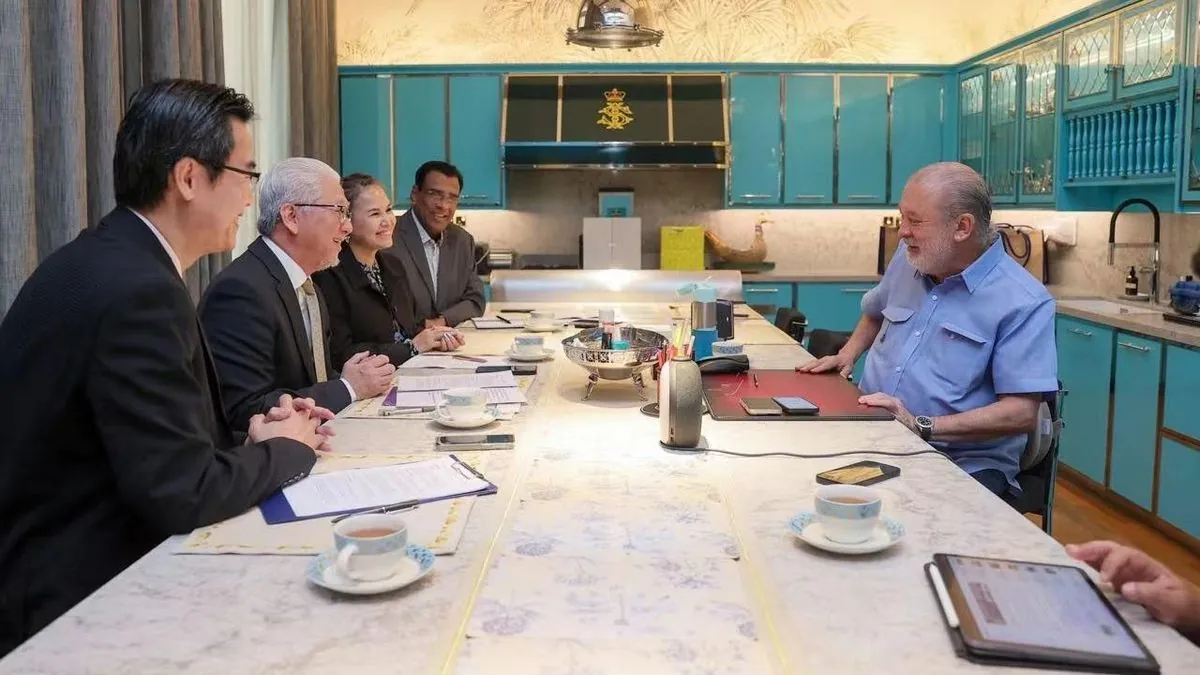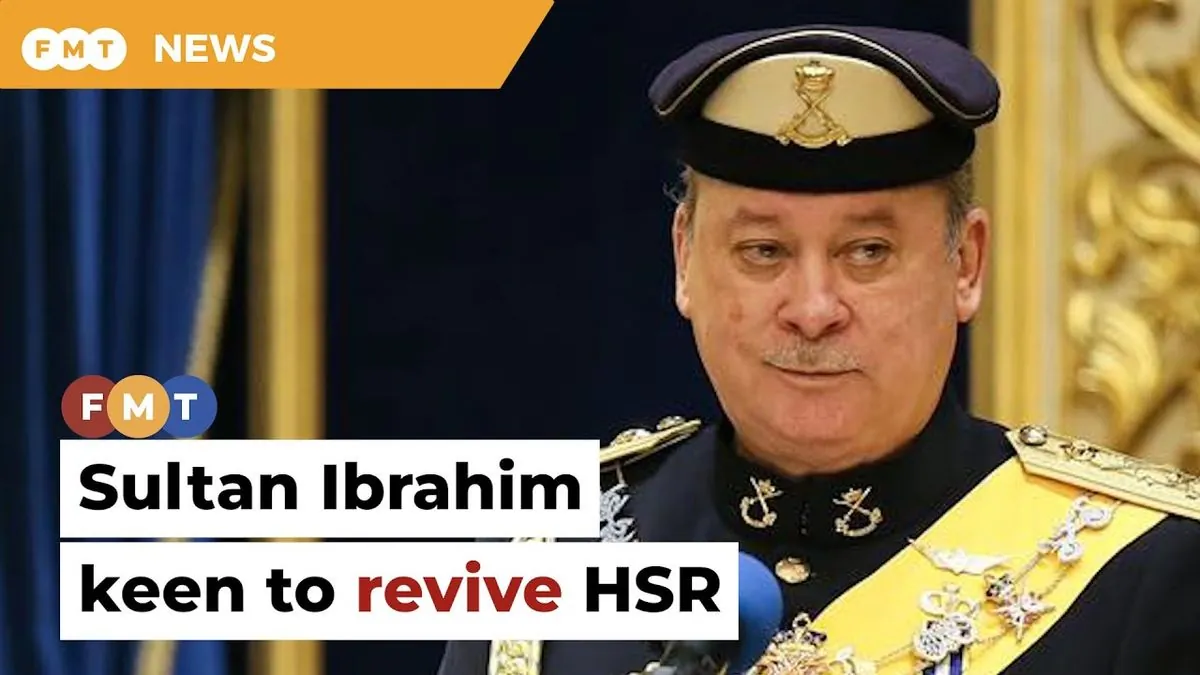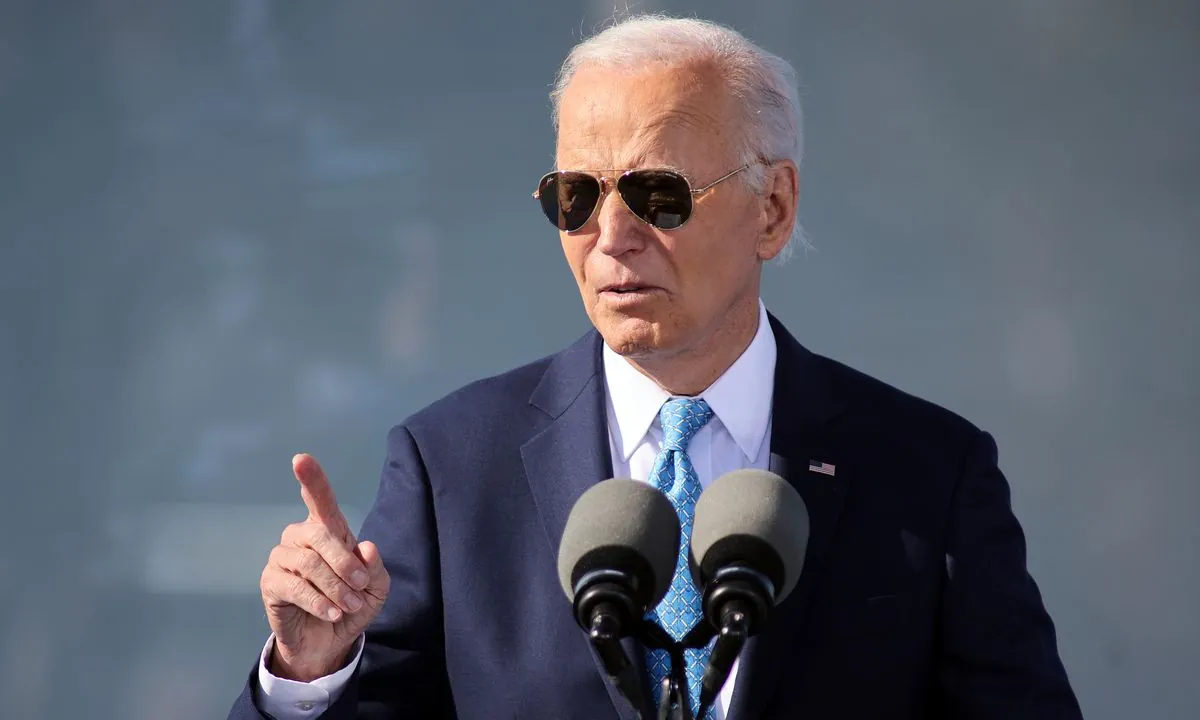Malaysian King to Visit China, Eyeing Infrastructure Boost
Malaysia's Sultan Ibrahim embarks on a four-day China visit, seeking support for infrastructure projects. The trip highlights potential shifts in the monarch's role and Malaysia-China relations.

Sultan Ibrahim of Malaysia is set to embark on a four-day visit to China from September 19 to 22, 2024, following an invitation from President Xi Jinping. This diplomatic engagement comes eight months after Sultan Ibrahim's installation as Malaysia's 17th king in January 2024.
Malaysia's unique rotating monarchy system involves the heads of nine royal families taking turns as king every five years. Traditionally, the monarch's role has been largely ceremonial, staying above political matters. However, Sultan Ibrahim has indicated his intention to be more involved in the country's political landscape.
In a recent interview with Singapore's Straits Times, Sultan Ibrahim proposed that Petroliam Nasional (Petronas), Malaysia's state oil firm, and the Malaysian Anti-Corruption Commission report directly to the monarch. This suggestion marks a potential shift in the balance of power within Malaysia's constitutional monarchy system.

The visit to China is expected to focus on infrastructure development, particularly in Sultan Ibrahim's home state of Johor. China has been supportive of Malaysian infrastructure initiatives, as evidenced by Premier Li Qiang's visit to Kuala Lumpur in June 2024. During that visit, Li endorsed Malaysian plans to enhance connectivity through the $10 billion East Coast Rail Link, which would connect to other China-backed railway projects in Laos and Thailand.
This proposed network aligns with the ambitious Pan-Asia Railway concept, which aims to link Kunming in southwestern China to Singapore, potentially passing through Johor. Sultan Ibrahim has expressed interest in reviving a previously stalled high-speed rail project between Malaysia and Singapore, with a proposed border crossing in Forest City.
Forest City, a $100 billion China-backed land reclamation and development project off Johor's coast, has been a subject of controversy. Sultan Ibrahim holds a stake in this project, which adds another layer of complexity to the discussions surrounding infrastructure development in the region.
"We need to enhance our connectivity to boost economic growth and improve the lives of our people. The proposed rail projects could be a game-changer for Johor and Malaysia as a whole."
As Malaysia's largest trading partner, China's support for these infrastructure projects could significantly impact the region's economic landscape. The visit also underscores the evolving nature of Malaysia-China relations and the potential for increased cooperation in various sectors.
While Sultan Ibrahim's proactive approach to governance and infrastructure development marks a departure from the traditionally ceremonial role of Malaysian monarchs, it remains to be seen how this will play out in practice. The outcome of this visit to China could set the tone for future diplomatic and economic engagements between the two nations.


































